Datasheet
Year, pagecount:2014, 6 page(s)
Language:English
Downloads:2
Uploaded:April 30, 2018
Size:559 KB
Institution:
-
Comments:
University of Geneva
Attachment:-
Download in PDF:Please log in!
Comments
No comments yet. You can be the first!Most popular documents in this category
Content extract
Source: http://www.doksinet Political parties and the framing of Muslims and Islam An analysis of the United Kingdom, Germany, Switzerland and the Netherlands Research proposal for PhD dissertation in political science Alexandra Feddersen Alexandra.Feddersen@unigech Supervisors: Prof. Dr Matteo Gianni Prof. Dr Pascal Sciarini University of Geneva – 2014/05/13 Source: http://www.doksinet Introduction and research questions Since the late 1990s and especially since 9/11, Western Europe’s Muslim minority has received much attention in the media and in
politics. Repeatedly, controversies and heated debates on issues as diverse as terrorism, Islamic cemeteries, minarets and headscarves contributed to an increasingly negative and generalizing discourse on Muslims and Islam (Allen 2007). The public media discourse on Muslims and Islam has been studied from a macro perspective, comparing the impact of national citizenship models on salience and negativity (e.g Cinalli and Giugni 2013), looking at topics and prejudices that are raised (e.g Poole and Richardson 2006, Parini, et al 2012), or analyzing how well Muslim actors
are represented in the discourse (e.g Kortman and Rosenow-‐Williams 2013, Feddersen and Banfi 2014). Surprisingly little has yet been written about political actors taking part in the debate. Until now, some studies focusing on anti-‐immigration rhetoric of populist right wing parties address these parties’ stance on Muslims (e.g Skenderovic 2006) However, the raising salience and negativity of the public discourse on Muslims and Islam can hardly be attributed exclusively to populist right wing parties. In a recent interview published by a major Swiss newspaper, Tariq Ramadan
addressed parties’ responsibility in shaping the ongoing discourse on Muslims and Islam in Europe saying that not only populist right wing parties were to blame for the increasingly negative tone against this minority : “[] le vrai danger de ce discours n’est pas qu’il reste dans les partis populistes, c’est qu’il se diffuse dans les autres partis” (Le Temps, 2013/11/05). Indeed, political parties contribute to the public debate either actively by launching initiatives and propositions or passively, since they are constrained to take a stand in order not to deceive their voters. Scientific
literature on party competition has shown that parties’ strategic emphasis of certain issues may influence how much importance other parties attach to this issue (Meguid 2005, Meguid 2008) and how salient some issues become in public discourse (Green-‐Pedersen and Krogstrup 2008). I therefore suggest that a closer look at all political parties’ positions and strategies on matters regarding Muslims and Islam is crucial. Although often considered as closely linked to the immigration debate, the discourse on the Muslim minority is not identical and has opened a new area
of party competition since many issues traditionally cultivated by political parties are tangent to this problem AF – Research proposal for PhD dissertation in political science 2 Source: http://www.doksinet (Behloul 2013:30). Questions that are raised on the Muslim minority and on Islam lie at the intersection of issues as diverse as immigration, security, religion, national identity and gender relations. In my dissertation, I would therefore like to address the following questions: (1) How much importance do political parties attach to the issues regarding the Muslim minority and Islam in
Western European countries and how do they frame them? (2) To what extent do parties’ emphasis and framings influence other parties’ framing strategies and the overall public discourse on this minority in a given country? Case selection and data This study will look at parties’ strategies concerning the issues regarding Muslims and Islam in four countries: Switzerland, the Netherlands, Germany and the United Kingdom. The comparison of these four countries seems relevant for practical as well as for theoretical reasons. On a practical level, countries were all part of the
Eurislam project (Finding a Place for Islam in Europe: Cultural Interactions between Muslim Immigrants and Receiving Societies, eurislam.com) and valuable data on the media public discourse on Muslims and Islam in these countries is therefore already available for the time period from 1999 to 2008. Furthermore, the four cases were selected among the countries covered by the Eurislam project based on two theoretical criteria: the presence or absence of a strong populist right wing party and the national citizenship model (Cinalli and Giugni 2013). Relevance In view of the lack of
systematic comparative literature on Western European parties’ emphasis and framing of issues regarding the Muslim minority, I consider the proposed research to be highly relevant. I intend to conduct this study with several goals in mind Theoretical contribution On a theoretical level, this study intends to clarify differences, similitudes and interconnections between strands of scientific literature dealing with closely related topics (party issue competition, issue ownership and niche party success) in order to put AF – Research proposal for PhD dissertation in political science 3 Source:
http://www.doksinet forward a theory of party competition, which would synthesize previous premises. A closer look at earlier findings is necessary to disentangle the causal mechanisms put forward by the authors conducting research on these subjects: Does it make any difference how issues are framed or is issue ownership just a question of (relative) salience? Is the outcome of parties’ issue competition the politicization of certain issues (e.g Green-‐Pedersen and Krogstrup 2008) or party success (eg Bale 2003, Schall 2004, Van Kersbergen and Krouwel 2008, Van Spanje 2010), or
both? At the same time, formulating a synthesized theory would allow to shed some light on questions which have so far only marginally been dealt with, e.g new policy issues, themes encompassing several previously owned issues and possible consequences on public discourse. Methodology Apart from using conventional tools to analyze quantitative content data, I intend to adopt a relatively new methodology called discourse network analysis. This method analyzes quantitative content data with social network tools (Adam 2008, Janning, et al. 2009). To apply this innovative method to a unique
dataset and adapt it for the analysis of parties’ framing strategies and issue competition could be very rewarding. Indeed, research based on issue competition and ownership theories could be treated in a more efficient, systematic and dynamic way going beyond frequency and time-‐series-‐analyses (Feddersen and Banfi 2014). Social and political relevance This research does not only intend to fill a gap in scientific literature, it also falls within a very controversial current political debate. Indeed, Western Europe’s Muslim minority and Islam have repeatedly been in the media spotlight.
With public media discourse getting increasingly negative and generalizing, the question of possible consequences on public policy and opinion rises. Previous research has shown that categories and frames commonly accepted in public discourse may influence both attitudes and public policy (Poole and Richardson 2006, Rigoni 2007, Vatter 2011, Gianni and Clavien 2012). AF – Research proposal for PhD dissertation in political science 4 Source: http://www.doksinet References Adam, Silke. 2008 "Medieninhalte Aus Der Netzwerkperspektive Neue Erkenntnisse Durch Die Kombination Von Inhalts-‐ Und
Netzwerkanalyse." Publizistik 53: 180-‐99 Allen, Chris. 2007 "Islamophobia and Its Consequences" In European Islam Challenges for Society and Public Policy, eds. Samir Amghar, Amel Boubekeur and Michael Emerson. Brussels: Center for European Policy Studies 144-‐67 Bale, Tim. 2003 "Cinderella and Her Ugly Sisters: The Mainstream and Extreme Right in Europes Bipolarising Party Systems." West European Politics 26: 67-‐90 Behloul, Samuel M. 2013 "Introduction" In Debating Islam Negotiating Religion, Europe and the Self, eds. Samuel M Behloul, Susanne Leuenberger
and Andreas Tunger-‐Zanetti. Bielefeld: transcript 11-‐35 Cinalli, Manlio, and Marco Giugni. 2013 "Political Opportunities, Citizenship Models and Political Calim-‐Making over Islam." Ethnicities 13: 147-‐64 Feddersen, Alexandra, and Elisa Banfi. 2014 "Do They Get to Say Something? Muslim Ogranizations Role and Importance in the Public Media Discourse on Muslims and Islam in Europe." Paper presented at the CES General Conference, Washington DC Gianni, Matteo, and Gaëtan Clavien. 2012 "Representing Gender, Defining Muslims? Gender and Figures of Otherness in Public Discourse in
Switzerland." In Political and Cultural Representations of Muslims, eds. Christopher Flood, Stephen Hutchings, Galina Miazhevich and Henri Nickels. Leiden/Boston: Brill 113-‐29 Green-‐Pedersen, Christoffer, and Jesper Krogstrup. 2008 "Immigration as a Political Issue in Denmark and Sweden." European Journal of Political Research 47: 610-‐34 Janning, Frank, Philip Leifeld, Thomas Malang, and Volker Schneider. 2009 "Diskursnetzwerkanalyse. Überlegungen Zur Theoriebildung Und Methodik" In Politiknetzwerke. Modelle, Anwendungen Und Visualisierungen, eds Volker Schneider, Frank Janning, Philip Leifeld and
Thomas Malang. Wiesbaden: VS Verlag für Sozialwissenschaften. 59-‐92 Kortman, Matthias, and Kerstin Rosenow-‐Williams. 2013 Islamic Organizations in Europe and the USA. A Multidisciplinary Perspective Basingstoke: Palgrave Macmillan. Meguid, Bonnie M. 2005 "Competition between Unequals: The Role of Mainstream Party Strategy in Niche Party Success." American Political Science Review 99: 347-‐59 . 2008 Party Competition between Unequals Strategies and Electoral Fortunes in Western Europe. Cambridge: Cambidge University Press Parini, Lorena, Matteo Gianni, and Gaëtan Clavien. 2012 "La
Transversalité Du Genre: Lislam Et Les Musulmans Dans La Presse Suisse Francophone." Cahiers du Genre 2: 197-‐218. AF – Research proposal for PhD dissertation in political science 5 Source: http://www.doksinet Poole, Elizabeth, and John E. Richardson 2006 Muslims and the News Media New York: I.BTauris Rigoni, Isabelle. 2007 "Access to Media for European Muslims" In European Islam Challenges for Society and Public Policy, eds. Samir Amghar, Amel Boubekeur and Michael Emerson. Brussels: Center for European Policy Studies 107-‐23 Schall, Charly E. 2004 "In
the Absence of Conflict: The Role of Immigration Discourse in the Lack of Extreme Right Success in Sweden." Department of Scandinavian Studies, University of Wisconsin – Madison. Skenderovic, Damir. 2006 "Feindbild Muslime -‐ Islamophobie in Der Radikalen Rechten" In Der Islam in Europa. Zwischen Weltpolitik Und Alltag, eds Urs Altermatt, Mariano Delgado and Guido Vergauwen. Stuttgart: Kohlhammar 79-‐95 Van Kersbergen, Kees, and André Krouwel. 2008 "A Double-‐Edged Sword! The Dutch Centre-‐Right and the ‘Foreigners Issue’." Journal of European Public Policy 15:
398-‐414. Van Spanje, Joost. 2010 "Contagious Parties: Anti-‐Immigration Parties and Their Impact on Other Parties’ Immigration Stances in Contemporary Western Europe." Party Politics 16: 563-‐86. Vatter, Adrian. 2011 Vom Schächt-‐ Zum Minarettverbot Religiöse Minderheiten in Der Direkten Demokratie. Zurich: NZZ Verlag Newspaper article Le Temps (2013/11/05). “L’Islam est une religion eurpéenne” http://letemps.ch/Page/Uuid/dd6f2f30-‐4583-‐11e3-‐80cf-‐ df2f9b5b19bb/Lislam est une religion europ%C3%A9enne#.UqmgmY1Q2Dp (2013/12/12) Website Eurislam http://www.eurislameu/page=sitehome (2013/06/28) AF – Research proposal for PhD
dissertation in political science 6
politics. Repeatedly, controversies and heated debates on issues as diverse as terrorism, Islamic cemeteries, minarets and headscarves contributed to an increasingly negative and generalizing discourse on Muslims and Islam (Allen 2007). The public media discourse on Muslims and Islam has been studied from a macro perspective, comparing the impact of national citizenship models on salience and negativity (e.g Cinalli and Giugni 2013), looking at topics and prejudices that are raised (e.g Poole and Richardson 2006, Parini, et al 2012), or analyzing how well Muslim actors
are represented in the discourse (e.g Kortman and Rosenow-‐Williams 2013, Feddersen and Banfi 2014). Surprisingly little has yet been written about political actors taking part in the debate. Until now, some studies focusing on anti-‐immigration rhetoric of populist right wing parties address these parties’ stance on Muslims (e.g Skenderovic 2006) However, the raising salience and negativity of the public discourse on Muslims and Islam can hardly be attributed exclusively to populist right wing parties. In a recent interview published by a major Swiss newspaper, Tariq Ramadan
addressed parties’ responsibility in shaping the ongoing discourse on Muslims and Islam in Europe saying that not only populist right wing parties were to blame for the increasingly negative tone against this minority : “[] le vrai danger de ce discours n’est pas qu’il reste dans les partis populistes, c’est qu’il se diffuse dans les autres partis” (Le Temps, 2013/11/05). Indeed, political parties contribute to the public debate either actively by launching initiatives and propositions or passively, since they are constrained to take a stand in order not to deceive their voters. Scientific
literature on party competition has shown that parties’ strategic emphasis of certain issues may influence how much importance other parties attach to this issue (Meguid 2005, Meguid 2008) and how salient some issues become in public discourse (Green-‐Pedersen and Krogstrup 2008). I therefore suggest that a closer look at all political parties’ positions and strategies on matters regarding Muslims and Islam is crucial. Although often considered as closely linked to the immigration debate, the discourse on the Muslim minority is not identical and has opened a new area
of party competition since many issues traditionally cultivated by political parties are tangent to this problem AF – Research proposal for PhD dissertation in political science 2 Source: http://www.doksinet (Behloul 2013:30). Questions that are raised on the Muslim minority and on Islam lie at the intersection of issues as diverse as immigration, security, religion, national identity and gender relations. In my dissertation, I would therefore like to address the following questions: (1) How much importance do political parties attach to the issues regarding the Muslim minority and Islam in
Western European countries and how do they frame them? (2) To what extent do parties’ emphasis and framings influence other parties’ framing strategies and the overall public discourse on this minority in a given country? Case selection and data This study will look at parties’ strategies concerning the issues regarding Muslims and Islam in four countries: Switzerland, the Netherlands, Germany and the United Kingdom. The comparison of these four countries seems relevant for practical as well as for theoretical reasons. On a practical level, countries were all part of the
Eurislam project (Finding a Place for Islam in Europe: Cultural Interactions between Muslim Immigrants and Receiving Societies, eurislam.com) and valuable data on the media public discourse on Muslims and Islam in these countries is therefore already available for the time period from 1999 to 2008. Furthermore, the four cases were selected among the countries covered by the Eurislam project based on two theoretical criteria: the presence or absence of a strong populist right wing party and the national citizenship model (Cinalli and Giugni 2013). Relevance In view of the lack of
systematic comparative literature on Western European parties’ emphasis and framing of issues regarding the Muslim minority, I consider the proposed research to be highly relevant. I intend to conduct this study with several goals in mind Theoretical contribution On a theoretical level, this study intends to clarify differences, similitudes and interconnections between strands of scientific literature dealing with closely related topics (party issue competition, issue ownership and niche party success) in order to put AF – Research proposal for PhD dissertation in political science 3 Source:
http://www.doksinet forward a theory of party competition, which would synthesize previous premises. A closer look at earlier findings is necessary to disentangle the causal mechanisms put forward by the authors conducting research on these subjects: Does it make any difference how issues are framed or is issue ownership just a question of (relative) salience? Is the outcome of parties’ issue competition the politicization of certain issues (e.g Green-‐Pedersen and Krogstrup 2008) or party success (eg Bale 2003, Schall 2004, Van Kersbergen and Krouwel 2008, Van Spanje 2010), or
both? At the same time, formulating a synthesized theory would allow to shed some light on questions which have so far only marginally been dealt with, e.g new policy issues, themes encompassing several previously owned issues and possible consequences on public discourse. Methodology Apart from using conventional tools to analyze quantitative content data, I intend to adopt a relatively new methodology called discourse network analysis. This method analyzes quantitative content data with social network tools (Adam 2008, Janning, et al. 2009). To apply this innovative method to a unique
dataset and adapt it for the analysis of parties’ framing strategies and issue competition could be very rewarding. Indeed, research based on issue competition and ownership theories could be treated in a more efficient, systematic and dynamic way going beyond frequency and time-‐series-‐analyses (Feddersen and Banfi 2014). Social and political relevance This research does not only intend to fill a gap in scientific literature, it also falls within a very controversial current political debate. Indeed, Western Europe’s Muslim minority and Islam have repeatedly been in the media spotlight.
With public media discourse getting increasingly negative and generalizing, the question of possible consequences on public policy and opinion rises. Previous research has shown that categories and frames commonly accepted in public discourse may influence both attitudes and public policy (Poole and Richardson 2006, Rigoni 2007, Vatter 2011, Gianni and Clavien 2012). AF – Research proposal for PhD dissertation in political science 4 Source: http://www.doksinet References Adam, Silke. 2008 "Medieninhalte Aus Der Netzwerkperspektive Neue Erkenntnisse Durch Die Kombination Von Inhalts-‐ Und
Netzwerkanalyse." Publizistik 53: 180-‐99 Allen, Chris. 2007 "Islamophobia and Its Consequences" In European Islam Challenges for Society and Public Policy, eds. Samir Amghar, Amel Boubekeur and Michael Emerson. Brussels: Center for European Policy Studies 144-‐67 Bale, Tim. 2003 "Cinderella and Her Ugly Sisters: The Mainstream and Extreme Right in Europes Bipolarising Party Systems." West European Politics 26: 67-‐90 Behloul, Samuel M. 2013 "Introduction" In Debating Islam Negotiating Religion, Europe and the Self, eds. Samuel M Behloul, Susanne Leuenberger
and Andreas Tunger-‐Zanetti. Bielefeld: transcript 11-‐35 Cinalli, Manlio, and Marco Giugni. 2013 "Political Opportunities, Citizenship Models and Political Calim-‐Making over Islam." Ethnicities 13: 147-‐64 Feddersen, Alexandra, and Elisa Banfi. 2014 "Do They Get to Say Something? Muslim Ogranizations Role and Importance in the Public Media Discourse on Muslims and Islam in Europe." Paper presented at the CES General Conference, Washington DC Gianni, Matteo, and Gaëtan Clavien. 2012 "Representing Gender, Defining Muslims? Gender and Figures of Otherness in Public Discourse in
Switzerland." In Political and Cultural Representations of Muslims, eds. Christopher Flood, Stephen Hutchings, Galina Miazhevich and Henri Nickels. Leiden/Boston: Brill 113-‐29 Green-‐Pedersen, Christoffer, and Jesper Krogstrup. 2008 "Immigration as a Political Issue in Denmark and Sweden." European Journal of Political Research 47: 610-‐34 Janning, Frank, Philip Leifeld, Thomas Malang, and Volker Schneider. 2009 "Diskursnetzwerkanalyse. Überlegungen Zur Theoriebildung Und Methodik" In Politiknetzwerke. Modelle, Anwendungen Und Visualisierungen, eds Volker Schneider, Frank Janning, Philip Leifeld and
Thomas Malang. Wiesbaden: VS Verlag für Sozialwissenschaften. 59-‐92 Kortman, Matthias, and Kerstin Rosenow-‐Williams. 2013 Islamic Organizations in Europe and the USA. A Multidisciplinary Perspective Basingstoke: Palgrave Macmillan. Meguid, Bonnie M. 2005 "Competition between Unequals: The Role of Mainstream Party Strategy in Niche Party Success." American Political Science Review 99: 347-‐59 . 2008 Party Competition between Unequals Strategies and Electoral Fortunes in Western Europe. Cambridge: Cambidge University Press Parini, Lorena, Matteo Gianni, and Gaëtan Clavien. 2012 "La
Transversalité Du Genre: Lislam Et Les Musulmans Dans La Presse Suisse Francophone." Cahiers du Genre 2: 197-‐218. AF – Research proposal for PhD dissertation in political science 5 Source: http://www.doksinet Poole, Elizabeth, and John E. Richardson 2006 Muslims and the News Media New York: I.BTauris Rigoni, Isabelle. 2007 "Access to Media for European Muslims" In European Islam Challenges for Society and Public Policy, eds. Samir Amghar, Amel Boubekeur and Michael Emerson. Brussels: Center for European Policy Studies 107-‐23 Schall, Charly E. 2004 "In
the Absence of Conflict: The Role of Immigration Discourse in the Lack of Extreme Right Success in Sweden." Department of Scandinavian Studies, University of Wisconsin – Madison. Skenderovic, Damir. 2006 "Feindbild Muslime -‐ Islamophobie in Der Radikalen Rechten" In Der Islam in Europa. Zwischen Weltpolitik Und Alltag, eds Urs Altermatt, Mariano Delgado and Guido Vergauwen. Stuttgart: Kohlhammar 79-‐95 Van Kersbergen, Kees, and André Krouwel. 2008 "A Double-‐Edged Sword! The Dutch Centre-‐Right and the ‘Foreigners Issue’." Journal of European Public Policy 15:
398-‐414. Van Spanje, Joost. 2010 "Contagious Parties: Anti-‐Immigration Parties and Their Impact on Other Parties’ Immigration Stances in Contemporary Western Europe." Party Politics 16: 563-‐86. Vatter, Adrian. 2011 Vom Schächt-‐ Zum Minarettverbot Religiöse Minderheiten in Der Direkten Demokratie. Zurich: NZZ Verlag Newspaper article Le Temps (2013/11/05). “L’Islam est une religion eurpéenne” http://letemps.ch/Page/Uuid/dd6f2f30-‐4583-‐11e3-‐80cf-‐ df2f9b5b19bb/Lislam est une religion europ%C3%A9enne#.UqmgmY1Q2Dp (2013/12/12) Website Eurislam http://www.eurislameu/page=sitehome (2013/06/28) AF – Research proposal for PhD
dissertation in political science 6
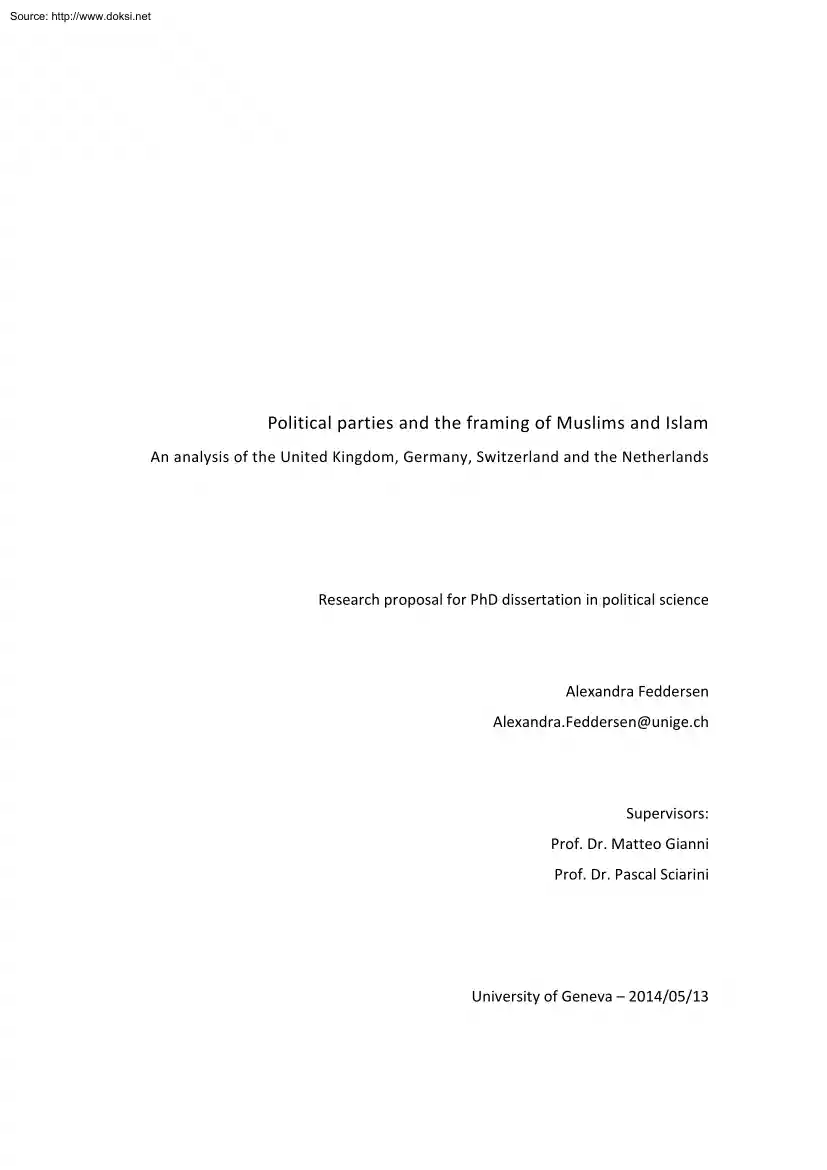
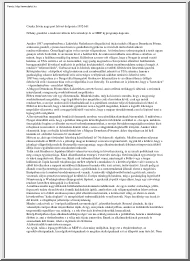
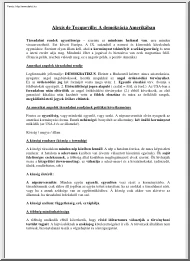
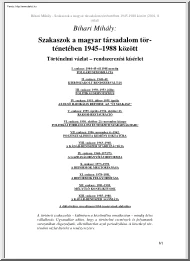
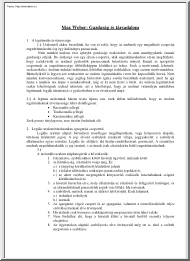
 When reading, most of us just let a story wash over us, getting lost in the world of the book rather than paying attention to the individual elements of the plot or writing. However, in English class, our teachers ask us to look at the mechanics of the writing.
When reading, most of us just let a story wash over us, getting lost in the world of the book rather than paying attention to the individual elements of the plot or writing. However, in English class, our teachers ask us to look at the mechanics of the writing.